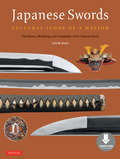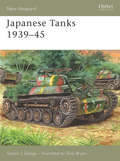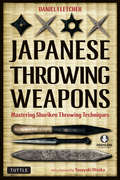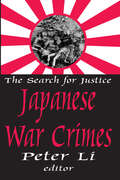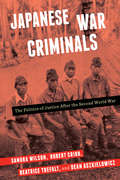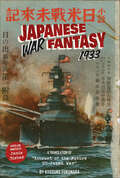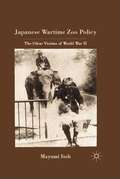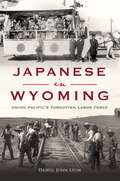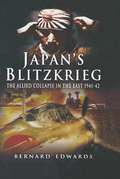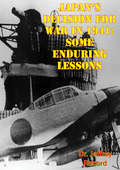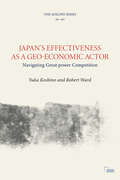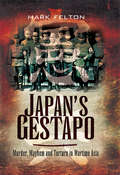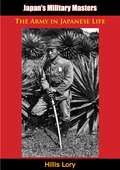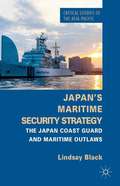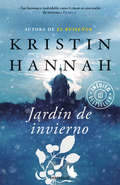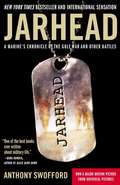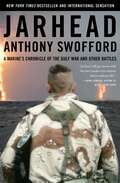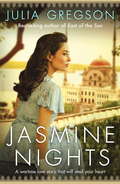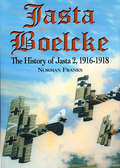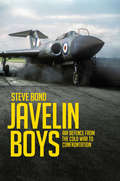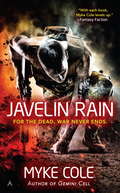- Table View
- List View
Japanese Swords
by Colin M. Roach Nicklaus Suino"Tracks the fundamental transition from the sword as a mythological instrument to a functional tool for war, and finally to the display art commodity it is today." - Publishers WeeklyAuthor Colin M. Roach collaborated with top-level artisans, historians, and martial arts experts to create a unique, in-depth study of these magnificent weapons from a historical, iconographical, and technological perspective. In addition to a foreword by seventh degree iaido black belt Nicklaus Suino and a sidebar by Mukansa-level polisher Abe Kazunori, Japanese Swords includes rare looks into the world of Mukansa-level swordsmiths Kawachi Kunihira and Gassan Sadatoshi. Complemented by hundreds of stunning high-resolution photos and downloadable material, Japanese Swords is a must-have addition to any Japanophile's library.
Japanese Tanks 1939-45
by Steven Zaloga Peter BullContrary to popular belief, the Japanese Army widely employed tanks within the Pacific theater of war. This title details their key role in the conquests of Singapore and Malaya, as well as their later use in Burma, Saipan, and the Philippines, including in the amphibious assault of Corregidor. Tank development succeeded against the odds, with the programme often neglected to pursue the higher priority of warship development. Their use in the most difficult of terrain is a testament to their ingenuity.Steven J Zaloga's book offers a rare insight into a largely overlooked subject and is rich with photographs and artwork, providing a wonderful resource for the construction and design of these fascinating tanks.From the Trade Paperback edition.
Japanese Throwing Weapons
by Daniel Fletcher Yasuyuki OtsukaJapanese Throwing Weapons is a detailed instruction manual for learning authentic shuriken throwing techniques as practiced in Japan. Daniel Fletcher studied under Japan's most notable shuriken sensei, Yasuyuki Otsuka, of the Meifu Shinkage Ryu and in this book he reveals the secrets learned in his years of study and training.Fletcher explains the origins and purpose of the shuriken as a weapon and provides information on the various types of shuriken used by the historic samurai and ninjas. Fletcher's expert instructions and the enclosed DVD can help anyone become proficient in throwing these weapons.
Japanese Throwing Weapons
by Daniel Fletcher Yasuyuki OtsukaJapanese Throwing Weapons is a detailed instruction manual for learning authentic shuriken throwing techniques as practiced in Japan. Daniel Fletcher studied under Japan's most notable shuriken sensei, Yasuyuki Otsuka, of the Meifu Shinkage Ryu and in this book he reveals the secrets learned in his years of study and training.Fletcher explains the origins and purpose of the shuriken as a weapon and provides information on the various types of shuriken used by the historic samurai and ninjas. Fletcher's expert instructions and the enclosed DVD can help anyone become proficient in throwing these weapons.
Japanese War Crimes
by Peter LiThe question of national responsibility for crimes against humanity became an urgent topic due to the charge of ethnic cleansing against the previous Yugoslav government. But that was not the first such urging of legal and moral responsibility for war crimes. While the Nazi German regime has been prototypical, the actions of the Japanese military regime have been receiving increasing prominence and attention. Indeed, Peter Li's volume examines the phenomenon of denial as well as the deeds of destruction.Certainly one of the most troublesome unresolved problems facing many Asian and Western countries after the Asia Pacific war (1931u1945) is the question of the atrocities committed by the Japanese Imperial Army throughout Asia and the Japanese government's repeated attempts to whitewash their wartime responsibilities. The psychological and physical wounds suffered by victims, their families, and relations remain unhealed after more than half a century, and the issue is now pressing. This collection undertakes the critical task of addressing some of the multifaceted and complex issues of Japanese war crimes and redress.This collection is divided into five themes. In "It's Never Too Late to Seek Justice," the issues of reconciliation, accountability, and Emperor Hirohito's responsibility for war crimes are explored. "The American POW Experience Remembered" includes a moving account of the Bataan Death March by an American ex-soldier. "Psychological Responses" discusses the socio-psychological affects of the Nanjing Massacre and Japanese vivisection on Chinese subjects. The way in which Japanese war atrocities have been dealt with in the theater and cinema is the focus of "Artistic Responses." And central to "History Must not Forget" are the questions of memory, trauma, biological warfare, and redress. Included in this volume are samples of the many presentations given at the International Citizens' Forum on War Crimes and Redress held in Tokyo in Decem
Japanese War Criminals: The Politics of Justice After the Second World War
by Robert Cribb Sandra Wilson Beatrice Trefalt Dean AszkielowiczBeginning in late 1945, the United States, Britain, China, Australia, France, the Netherlands, and later the Philippines, the Soviet Union, and the People's Republic of China convened national courts to prosecute Japanese military personnel for war crimes. The defendants included ethnic Koreans and Taiwanese who had served with the armed forces as Japanese subjects. In Tokyo, the International Military Tribunal for the Far East tried Japanese leaders. While the fairness of these trials has been a focus for decades, Japanese War Criminals instead argues that the most important issues arose outside the courtroom. What was the legal basis for identifying and detaining subjects, determining who should be prosecuted, collecting evidence, and granting clemency after conviction? The answers to these questions helped set the norms for transitional justice in the postwar era and today contribute to strategies for addressing problematic areas of international law. Examining the complex moral, ethical, legal, and political issues surrounding the Allied prosecution project, from the first investigations during the war to the final release of prisoners in 1958, Japanese War Criminals shows how a simple effort to punish the guilty evolved into a multidimensional struggle that muddied the assignment of criminal responsibility for war crimes. Over time, indignation in Japan over Allied military actions, particularly the deployment of the atomic bombs, eclipsed anger over Japanese atrocities, and, among the Western powers, new Cold War imperatives took hold. This book makes a unique contribution to our understanding of the construction of the postwar international order in Asia and to our comprehension of the difficulties of implementing transitional justice.
Japanese War Fantasy 1933: A Translation of "Account of the Future US-Japan War"
by Kyosuke FukunagaA new annotated edition of a shocking Japanese paperback, published in 1933, which foreshadowed a surprise attack on the US Pacific Fleet.Learn why the original Japanese version was confiscated and banned in the US. The government went as far as to collect books that had already been sold.The original novel was endorsed by two admirals in the Imperial Japanese Navy, both of whom provided forewords for the book. Although explicitly a work of fiction, the book was implicitly a statement of real IJN strategy.
Japanese Wartime Zoo Policy
by Mayumi ItohThis book examines Japanese wartime zoo policy during World War II, analyzing the reasons why the Home Ministry destroyed more than 300 showpiece animals throughout Japan well before U. S. air strikes were anticipated, with international comparisons of the effects of the war on zoos in Europe, the United States, and the Middle East.
Japanese Women Writers: Twentieth Century Short Fiction (Japan In The Modern World Ser.)
by Kyoko Iriye Selden Noriko Mizuta Lippit"Here are Japanese women in infinite and fascinating variety -- ardent lovers, lonely single women, political activists, betrayed wives, loyal wives, protective mothers, embittered mothers, devoted daughters. ... a new sense of the richness of Japanese women's experience, a new appreciation for feelings too long submerged". -- The New York Times Book Review
Japanese in Wyoming: Union Pacific's Forgotten Labor Force (American Heritage)
by Mr. Daniel LyonImmigration in the Equality State Long before Heart Mountain Internment Camp brought Japanese prisoners to Wyoming, an immigrant work force put down lasting roots. Beginning in 1892, Japanese came to toil on Union Pacific's railroad and coal mines. But they weren't warmly welcomed. Newspapers charged every Japanese section worker was secret Japanese Army. Allegedly, "600 Japs in Utah, [and] about 400 in Wyoming and probably 100 in Colorado," were ready to serve Japan during the Japanese Russo War. George Wakimoto said the number was closer to six. Such misinformation about Japanese laborers spawned violence against Asians. The citizens of Evanston tried to blow them up. Rawlins ran the Japanese out of town. And in Laramie, young boys threw stones and dragged a Japanese man through the street. Author Dan Lyon chronicles Japanese perseverance, before and after both world wars, in their adopted state.
Japans Blitzkrieg: The Allied Collapse in the East, 1941–42
by Bernard EdwardsEarly on the morning of 7 December 1941, 360 Japanese carrier-borne aircraft made a surprise attack on the US naval base at Pearl Harbor, and laid waste to the American Far East Fleet. They sank four battleships, crippled three cruisers and three destroyers, and seriously damaged two other battleships. One hundred and sixty-four planes were destroyed and 2,403 servicemen and civilians were killed. All for the loss of twenty-nine Japanese aircraft and fifty-five men. Two days later, the British battleships Prince of Wales and Repulse, were sunk by Japanese torpedo bombers as they raced north to intercept an enemy invasion force heading for Malaya. In these two bold forays, the Japanese had successfully emasculated Allied naval power in the East. There now remained no big guns afloat anywhere in the Pacific and Indian oceans capable of opposing Admiral Yamamoto's ships.So began Japan's blitzkrieg. The Malay peninsular was rapidly overwhelmed, Hong Kong surrendered on Christmas Day, Manila went the same way on the 31st, and on 15 February 1942, in one of the most ignominious defeats in modern warfare, 85,000 British troops laid down their arms, and the vital base of Singapore was in Japanese hands. Thereafter, the rays of the Rising Sun spread ever outwards, overrunning island after island, until even Australia was threatened. The book tells how the Dutch Spice Islands, Java and Sumatra, became a last refuge for those fleeing before the Japanese whirlwind advance, and it was from here that the remaining Allied merchant ships in the area made their bid for freedom carrying hundreds of refugees. For many of these ships it was to be their last voyage
Japan’s American Interlude
by Prof. Kazuo KawaiHow did the Japanese themselves respond to the American occupation? How were the sweeping reforms—political, social, and economic—of SCAP’s program received? How permanent was their effect, and why did some succeed and others fail completely? How successful in the long view was the democratization induced by MacArthur’s “artificial revolution”? And what tendencies existing in fundamental Japanese attitudes and history might account for this peculiar success?Kazuo Kawai, Japanese-born and educated in America, a political scientist and journalist, brings his unique experience and knowledge to bear on these questions. The result is a book which tells the story of the American occupation of Japan from the Japanese point of view.“This book deals with the American interlude in the history of Japan during which time that country was not only occupied by American troops and politically controlled by American officials but was subjected to almost every conceivable variety of American influence. It does not attempt to tell the story of the Occupation itself, for that story has already been told many times by Americans who, as participants or close observers, were in a position to tell it well. Instead, this work deals only with selected controversial aspects of the Japanese reaction to American influence during the Occupation period.”—Kazuo Kawai, Preface
Japan’s Decision For War In 1941: Some Enduring Lessons - War College Series
by Dr Jeffrey RecordJapan's decision to attack the United States in 1941 is widely regarded as irrational to the point of suicidal. How could Japan hope to survive a war with, much less defeat, an enemy possessing an invulnerable homeland and an industrial base 10 times that of Japan? The Pacific War was one that Japan was always going to lose, so how does one explain Tokyo's decision? Did the Japanese recognize the odds against them? Did they have a concept of victory, or at least of avoiding defeat? Or did the Japanese prefer a lost war to an unacceptable peace?Dr. Jeffrey Record takes a fresh look at Japan's decision for war, and concludes that it was dictated by Japanese pride and the threatened economic destruction of Japan by the United States. He believes that Japanese aggression in East Asia was the root cause of the Pacific War, but argues that the road to war in 1941 was built on American as well as Japanese miscalculations and that both sides suffered from cultural ignorance and racial arrogance. Record finds that the Americans underestimated the role of fear and honor in Japanese calculations and overestimated the effectiveness of economic sanctions as a deterrent to war, whereas the Japanese underestimated the cohesion and resolve of an aroused American society and overestimated their own martial prowess as a means of defeating U.S. material superiority. He believes that the failure of deterrence was mutual, and that the descent of the United States and Japan into war contains lessons of great and continuing relevance to American foreign policy and defense decision-makers.
Japan’s Effectiveness as a Geo-Economic Actor: Navigating Great-Power Competition (Adelphi series)
by Robert Ward Yuka KoshinoGeo-economic strategy – deploying economic instruments to secure foreign-policy aims and to project power – has long been a key element of statecraft. In recent years, it has acquired even greater salience given China’s growing antagonism with the United States and the willingness of both Beijing and Washington to wield economic power in their confrontation. This trend has particular significance for Japan given its often tense political relationship with China, which remains its largest trading partner. While Japan’s post-war geo-economic performance often failed to match its status as one of the world’s largest economies, more recently Tokyo has demonstrated increased geo-economic agency and effectiveness. In this Adelphi book, Yuka Koshino and Robert Ward draw on multiple disciplines – including economics, political economy, foreign policy and security policy – and interviews with key policymakers to examine Japan’s geo-economic power in the context of great-power competition between the US and China. They examine Japan’s previous underperformance, how Tokyo’s understanding of geo-economics has evolved and, given constraints on its national power-projection, what actions Japan might feasibly take to become a more effective geo-economic actor. Their conclusions will be of direct interest not only for all those concerned with Japanese grand strategy and the Asia-Pacific, but also for those middle powers seeking to navigate great-power competition in the coming decades.
Japan’s Gestapo: Murder, Mayhem and Torture in Wartime Asia
by Mark FeltonThe book opens by explaining the origins, organisation and roles of the Kempetai apparatus, which exercised virtually unlimited power throughout the Japanese Empire. The author reveals their criminal and collaborationist networks, which extorted huge sums of money from hapless citizens and business. They ran the Allied POW gulag system which treated captives with brutality and a complete lack of mercy.Other Kempetai activities included biological and chemical experiments on live subjects, slave labour, including 'Comfort Women' drawn from all races.Their record of reprisals against military and civilians was unrelenting. For example Colonel Doolittle's raid on Tokyo in 1942 resulted in a campaign of revenge not just against captured airmen but thousands of Chinese civilians. Their actions amounted to genocide on a grand scale.Of particular distaste is the revelation of the Maruta vivisection campaign.The author backs up his text with first hand testimonies from those survivors who suffered at the hands of this evil organization. He examines how the guilty were bought to justice and the resulting claims for compensation.
Japan’s Military Masters: The Army in Japanese Life
by Hillis LoryTHE REALISTIC FACTS ABOUT JAPAN’S CAPACITY—IN MANPOWER AND IN NATIONAL MORALE—TO FIGHT THE “HOLY WAR” HER MILITARY LEADERS HAVE SO LONG PLANNED FOR HERIn Japanese Military Masters: The Army in Japanese Life, author Hillis Lory answers fundamental questions in satisfactory detail. He describes the life and though of the peasant, the motives and personalities of the men close to the Throne. He traces the evolution of Japanese government from feudalism to modern power politics. He records the assassinations, the rebellions, the secret societies, the coups d’état that have shaped it. He recalls the struggle between the liberal and the military leaders for control of Japan’s destiny.“Among the many books about Japan that have appeared since Pearl Harbor, this book is one of the few that could fairly be called indispensable for its high informational content. The author has learned about as much as any foreign could learn about the organization and psychology and training and general make-up of the Japanese Army. And he puts his material together in the style of a good military report, without padding and exaggeration.—The New York Times Book Review
Japan�s Maritime Security Strategy
by Lindsay BlackIn recent times, international society has countered a myriad of 'outlaw' threats at sea, including piracy, terrorism, the proliferation of Weapons of Mass Destruction (WMD) and the threat posed by 'rogue states'. Whilst the US has promoted 'coalitions of the willing' and sought to transform international maritime law in response to these 'outlaws', Japanese governments have developed an innovative maritime security strategy centering on the Japan Coast Guard (JCG). Concerned by Japan's international image as a former imperialist power, Tokyo has relied upon the identity of the JCG as a law enforcement and rescue organization to garner support for its maritime security strategy. Japan's non-military efforts have developed the capacities of states and built institutions in the Southeast Asian region and beyond. The JCG's response to maritime 'outlaws' belies characterizations of Japan as a passive state that does not contribute to international order.
Jardín de invierno
by Kristin HannahUna gran historia de amor ambientada en la Segunda Guerra Mundial de Kristin Hannah, la autora de El Ruiseñor. Una ciudad sitiada. Una madre. Dos hijas. Y un secreto que cambiará sus vidas para siempre. URSS, 1941. Leningrado es una ciudad sitiada, aislada de toda posibilidad de ayuda por la guerra y la nieve que entierra los edificios con su blancura. Pero en Leningrado también hay mujeres sumidas en la desesperación, capaces de cualquier cosa para salvar a sus hijos y a sí mismas de un final trágico. Estados Unidos, 2000. La pérdida y los años han causado estragos en Anya Whitson. Finalmente ha conseguido contactar con sus hijas, Nina y Meredith. Y con una voz vacilante e insegura, empieza a entretejer la historia de una bella y joven rusa que vivió en Leningrado hace mucho tiempo... En una cruzada en busca de la verdad oculta tras la historia, las dos hermanas se enfrentarán a un secreto que hará tambalear los cimientos de su familia y cambiará para siempre la imagen de quiénes creían ser. Reseñas:«Una lectura apasionante.»Booklist «La mejor y más profunda novela que ha escrito Hannah hasta la fecha.»The Huffington Post «Una poderosa historia de amor, familia y mujeres supervivientes. Un relato fascinante que cose la realidad y los cuentos de hadas que no siempre acaban como uno espera.»The Herald News «A los lectores les va a costar no reír un poco y llorar un poco más cuando la madre y las hijas se encuentren unas a otras justo a tiempo.»Publishers Weekly
Jarhead: A Marine's Chronicle of the Gulf War and Other Battles
by Anthony SwoffordThe author weaves his experiences in war with vivid accounts of boot camp, reflections on the mythos of the marines, and remembrances of battles with lovers and family.
Jarhead: A Marine's Chronicle of the Gulf War and Other Battles
by Anthony SwoffordAnthony Swofford's Jarhead is the first Gulf War memoir by a frontline infantry marine, and it is a searing, unforgettable narrative. When the marines -- or "jarheads," as they call themselves -- were sent in 1990 to Saudi Arabia to fight the Iraqis, Swofford was there, with a hundred-pound pack on his shoulders and a sniper's rifle in his hands. It was one misery upon another. He lived in sand for six months, his girlfriend back home betrayed him for a scrawny hotel clerk, he was punished by boredom and fear, he considered suicide, he pulled a gun on one of his fellow marines, and he was shot at by both Iraqis and Americans. At the end of the war, Swofford hiked for miles through a landscape of incinerated Iraqi soldiers and later was nearly killed in a booby-trapped Iraqi bunker. Swofford weaves this experience of war with vivid accounts of boot camp (which included physical abuse by his drill instructor), reflections on the mythos of the marines, and remembrances of battles with lovers and family. As engagement with the Iraqis draws closer, he is forced to consider what it is to be an American, a soldier, a son of a soldier, and a man. Unlike the real-time print and television coverage of the Gulf War, which was highly scripted by the Pentagon, Swofford's account subverts the conventional wisdom that U.S. military interventions are now merely surgical insertions of superior forces that result in few American casualties. Jarhead insists we remember the Americans who are in fact wounded or killed, the fields of smoking enemy corpses left behind, and the continuing difficulty that American soldiers have reentering civilian life. A harrowing yet inspiring portrait of a tormented consciousness struggling for inner peace, Jarhead will elbow for room on that short shelf of American war classics that includes Philip Caputo's A Rumor of War and Tim O'Brien's The Things They Carried, and be admired not only for the raw beauty of its prose but also for the depth of its pained heart.
Jasmine Nights: A Richard and Judy bookclub choice
by Julia GregsonA captivating WW2 love story from the bestselling author of EAST OF THE SUN, a Richard & Judy selection.1942 and the world is at war. It is a war that has already shattered families and devastated countries. But for some, it will also mean the greatest of adventures. In a burns hospital in Sussex, a beautiful young singer performs to a ward full of injured soldiers. Saba is captivating and one pilot, Dom, shudders as her gaze turns his way. He can't bear her to see his scars but resolves to write to her once they have healed. The world is on the brink of enormous change. Saba's journey as a singer with ENSA takes her to the fading glamour of Alexandria and the heat and decadence of Turkey. On the glamorous Middle Eastern social circuit, Saba rubs shoulders with double agents and diplomats, movie stars and smugglers. Some want her voice, some her friendship, and some the secrets she is perfectly placed to discover...JASMINE NIGHTS is a tale of decadence and destruction, of love and of danger. It is the captivating love story set in an extraordinary world.
Jasmine Nights: A Richard and Judy bookclub choice
by Julia GregsonA captivating WW2 love story from the bestselling author of EAST OF THE SUN, a Richard & Judy selection.1942 and the world is at war. It is a war that has already shattered families and devastated countries. But for some, it will also mean the greatest of adventures. In a burns hospital in Sussex, a beautiful young singer performs to a ward full of injured soldiers. Saba is captivating and one pilot, Dom, shudders as her gaze turns his way. He can't bear her to see his scars but resolves to write to her once they have healed. The world is on the brink of enormous change. Saba's journey as a singer with ENSA takes her to the fading glamour of Alexandria and the heat and decadence of Turkey. On the glamorous Middle Eastern social circuit, Saba rubs shoulders with double agents and diplomats, movie stars and smugglers. Some want her voice, some her friendship, and some the secrets she is perfectly placed to discover...JASMINE NIGHTS is a tale of decadence and destruction, of love and of danger. It is the captivating love story set in an extraordinary world.
Jasta Boelcke: The History of Jasta 2, 1916–1918
by Norman FranksAn account of the renowned German fighter unit in World War I, &“a wonderful journey through these pilots&’ lives, in victory and defeat&” (Aerodrome). As August drew to a close in 1916, the German Air Service was reeling almost helplessly towards inevitable defeat on the Somme. The Artillery and Feldflieger Abteilungen, the Kampfstaffeln, had been quickly reduced to relative impotency by the overwhelming quantitative and qualitative superiority of the Allies. The once feared Fokker and Pfalz Eindeckers proved unequal to the task of checking the aerial flood which daily scoured the ravaged German front. A crisis was reached. Germany was compelled to seek a new solution. Jagdstaffel 2 was formed to stem the tide and fight back. Later by Imperial decree renamed Jasta Boelcke in honor of its distinguished commander Oswald Boelcke, this military formation had no prolonged, entangled gestation period. There was no parent, no prior stirrings of life. Jasta 2 was lifted from the keyboard of a typewriter, assigned to the First Army and provided with a leader. Between 2 September and 31 December 1916, it scored 85 kills, and was destined to end the war with 336 confirmed victories. Here, for the first time, is the story of that auspicious and audacious unit, told in his inimitable style by Norman Franks, an expert in his subject.
Javelin Boys: Air Defence from the Cold War to Confrontation
by Steve BondThis Royal Air Force history examines a revolutionary Cold War era aircraft with firsthand accounts from veterans who flew them all over the world. The Gloster Javelin, an all-weather interceptor aircraft, was the UK&’s first line of air defense in the 1950s and 1960s, both at home and in Royal Air Force Germany. With an unorthodox aerodynamic design, the Javelin had major production issues early on—including a tendency for engines to self-destruct under certain conditions. But the revolutionary aircraft still receives much affection from its former crew. Some of their most thrilling, fascinating and colorful stories are collected here in terrific detail. Starting from the first deliveries of Javelins in 1956 until the final withdrawal from RAF squadron use in 1968, Javelin Boys describes adventures all over the world—from Cyprus to Singapore during the Indonesian Confrontation and Zambia during the Rhodesian declaration of UDI. Alongside their anecdotes is a detailed history of this unusual aircraft, accompanied by photography never seen before in print.
Javelin Rain: A Shadow Ops Novel
by Myke ColeThe fast-paced, adrenaline-filled sequel to Gemini Cell, set in the same magical and militaristic world of the acclaimed Shadow Ops series. Javelin: A code denoting the loss of a national security asset with strategic impact. Rain: A code indicating a crisis of existential proportions. Javelin Rain incidents must be resolved immediately, by any and all means necessary, no matter what the cost... Being a US Navy SEAL was Jim Schweitzer's life right up until the day he was killed. Now, his escape from the government who raised him from the dead has been coded "Javelin Rain." Schweitzer and his family are on the run from his former unit, the Gemini Cell, and while he may be immortal, his wife and son are not. Jim must use all of his strength to keep his family safe, while convincing his wife he's still the same man she once loved. But what his former allies have planned to bring him down could mean disaster not only for Jim and his family, but for the entire nation...From the Paperback edition.
